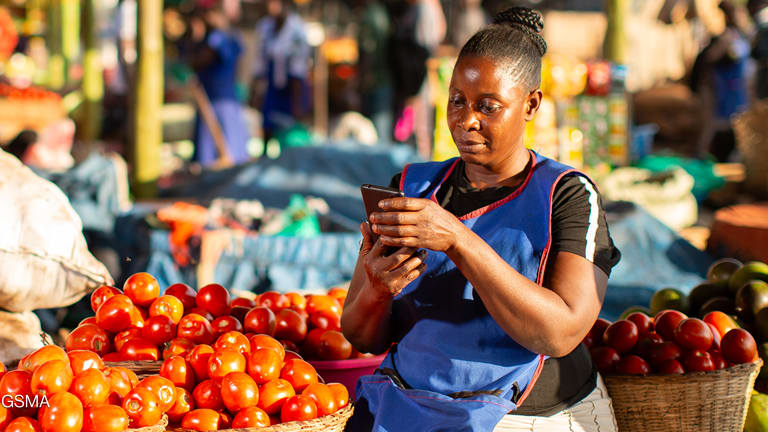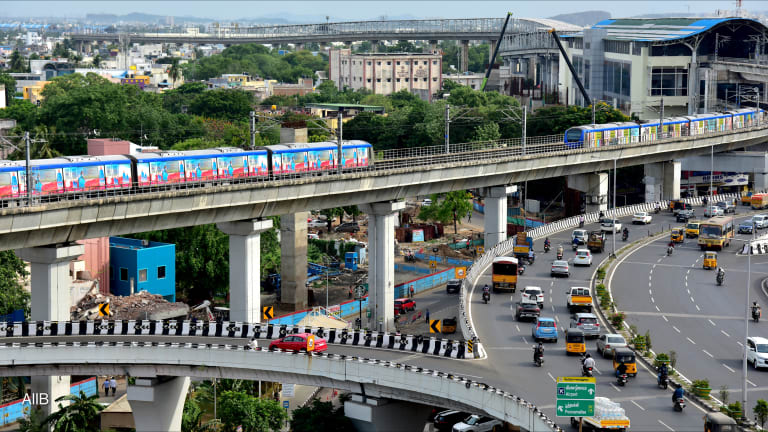
As the world becomes increasingly digital, the gap between those with and those without internet access becomes wider and more pressing. In 2016, the United Nations declared access to internet a fundamental human right, critical to providing people around the world with opportunities to improve their lives through tools and services such as digital banking and precision agriculture.
Universal access to reliable internet is imperative to deliver on the Sustainable Development Goals. Yet progress has been uneven and, in some places, nearly stalled. In its annual Sustainable Development Goals checkup report, the U.N. warned that the world is not on pace to reach the SDGs and that inequality between rich and poor, urban and rural, was growing.
Microsoft vows to get 40M more people online by 2022
Technology giant Microsoft unveiled plans to ramp up its connectivity efforts across sub-Saharan Africa and Latin America, though some observers called for greater ambition given the level of need.
It’s therefore not surprising to learn that over 46% of the world does not access the internet and only 14% of people have fixed broadband subscriptions in their homes. Addressing digital inequality, which is more acute in rural areas and disproportionately impacts those with less income, is an important part of the solution to global sustainable development.
Over 46% of the world does not access the internet and only 14% of people have fixed broadband subscriptions in their homes.
— Shelley McKinley, vice president of Technology and Corporate Responsibility, MicrosoftAccess to reliable internet has the power to:
1. Increase GDP
For low- and middle-income countries, every percentage point of GDP means improved employment opportunities, standards of living, and financial security for their citizens, and there’s a direct correlation between broadband internet access and a country’s ability to increase its wealth.
An ITU/UNESCO Broadband Commission for Sustainable Development report found that a 10% increase in broadband use yields a 0.8% increase in GDP, with services such as digital finance having the potential to boost annual GDP of all emerging economies by $3.7 trillion by 2025. Universal access to high-speed internet serves as a catalyst for creating digital ecosystems, transforming economies, and raising incomes.
2. Boost access to digital financial services
Financial inclusion — such as mobile money and digital payment services — is a crucial step toward earning an income and gaining financial stability, especially for women. In Kenya, research found that the widely adopted mobile money provider M-Pesa has enabled women-headed households to increase their savings by more than a fifth and helped reduce extreme poverty among these households by 22%.
The Future of Development Finance: 5 event takeaways
There’s plenty of money. But not enough is invested in a better world. The so-called “billions to trillions” idea is still more an idea than reality. What’s holding it back? How do we drive it forward?
Yet about 1.7 billion adults worldwide are unbanked, leaving them reliant on informal methods of saving money and paying for services, which are often risky and expensive. However, with two-thirds of these adults owning mobile phones, there is an opportunity to change that. Microsoft Airband partner M-KOPA, the largest provider of clean off-grid energy solutions in East Africa, leverages a pay-as-you-go digital payment model. This model brings its unbanked customers into the formal economy by helping them build credit.
3. Increase agricultural productivity
Connectivity has the potential to transform one of the world’s oldest and most important industries: agriculture. And with over a quarter of the world’s people — many of them among the world’s poorest — making their livelihood through agriculture, it is vital to make the sector more productive and predictable to support farmers’ economic stability and create better yields.
Internet-powered solutions, such as that provided by Microsoft Airband partner SunCulture, help farmers make data-driven decisions. By bringing SunCulture’s solar-powered irrigation systems and services online, farmers in Kenya saw a 17-hour reduction in hours worked on average, a 300% increase in crop yields, and a tenfold increase in annual earnings.
These are just three of the countless reasons why Microsoft recently announced its goals for the Airband Initiative in international markets. By 2022, we aim to extend broadband access to 40 million people around the world through our partnership model that pairs our expertise and funding with local entrepreneurship and connectivity expertise. With our partners, we are hoping to create a blueprint that others can follow and stimulate international investment to close the broadband gap.
The Airband blueprint is simple and will rely on a four-part approach:
1. Removing regulatory obstacles to internet access technologies, such as TV white spaces, that help our partners extend their networks quickly in unserved, predominantly rural areas.
2. Partnering with local internet service providers that have the on-the-ground knowledge needed to provide affordable, reliable internet services.
3. Enabling rural digital transformation in newly connected areas, with a focus on supporting agriculture, education, rural entrepreneurship, and telemedicine, as well as off-grid energy sources to help improve rural productivity and livelihoods.
4. Building a larger ecosystem of support, with a focus on stimulating international financing, to scale connectivity projects beyond our own direct investments.
Given the scope of the challenge — globally, 3.6 billion people still lack adequate internet access — 40 million may feel like a drop in the bucket. Through the Airband Initiative, Microsoft isn’t attempting to solve global digital inequality by itself. Instead, we’re looking to create a blueprint that others can use. We hope to demonstrate the value of additional international and corporate investment in this space and empower local companies to solve local connectivity challenges in their communities.
We believe the internet’s power to transform people’s lives for the better firmly categorizes it as a fundamental human right that is vital for sustainable development. But we can’t do it alone. It will take a public-private effort that includes partners, varied technology solutions, and — most importantly — increased international financial backing to make universal broadband internet access a reality. By working together, we can get more people connected to high-speed internet and, ultimately, create a more prosperous future for communities and nations around the world.








